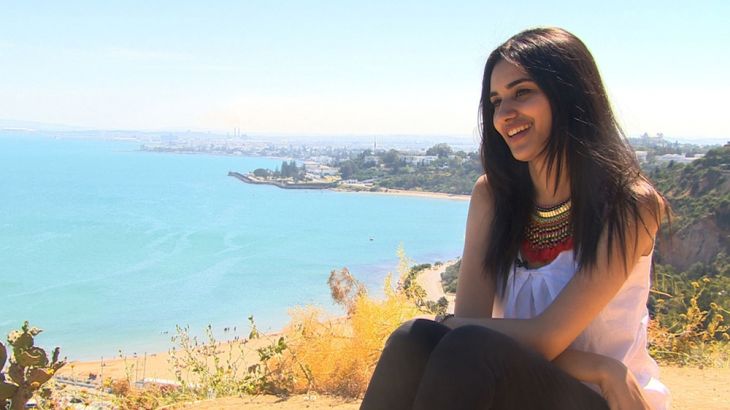
After the Arab Spring
Five young Arabs from countries that went through the 2011 revolutions reflect on what has happened five years on.
Filmmaker: Eyad al-Daoud
In December 2010, protests broke out in Tunisia which led to the first of the series of revolutions that became known as the Arab Spring.
Keep reading
list of 4 itemsEgypt’s President el-Sisi to run for third term, opposition decry pressure
Tunisian police arrest two top officials in Ennahda opposition party
The Arab Spring is not dead
In this film, five young people from Tunisia, Egypt, Yemen, Syria and Libya look back at the revolutions in their respective countries – at the effect these revolutions have had on their lives, at what has happened since, and their hopes and fears for the future.
Insaf Qasmi, from Tunis, was 15 during the uprising and now studies media and management at university. “Today’s Tunisia is better than yesterday’s Tunisia,” she says, and feels that civil society needs to be strengthened for the country to succeed.
The revolution is not simply a place we leave and that's it. It's about values and principles which we have to hold on to tightly. It's everything they fought for and that they sacrificed their blood for.
Mohammad Mostafa Wa’al comes from Egypt and witnessed the crackdown of pro-Morsi supporters on August 14, 2013. He was jailed for three months for saying “‘no’ to what happened in Rabaa”.
His father also has been jailed. Mohammad felt he had to leave Egypt and is now in Istanbul, where he studies.
Rihab al-Qatabri is 19 and a student in Sanaa. She sees the revolution as a turning point in Yemen’s history, but deeply regrets how the civil war has continued, before and after her interviews were filmed in 2015.
In Libya, Mazin Rojoba, 22, is a student and a TV sports presenter in Tripoli. He accepts that his country faces a struggle to rebuild after the removal of Gaddafi. “I think of Libya as a mother who suffered for 42 years because of her unruly son. Her children have now come to comfort her. Libya deserves more.”
Murad Nasif is 19 and comes from Syria. He is originally from the Golan Heights, which have been occupied by Israel since 1967. Murad and his family sought refuge in Turkey and he studies civil engineering there.
“A Syrian who has left Syria can’t serve the revolution any more,” he says. He hopes one day to return to his country and help to rebuild it.
As these five young people reflect on the past five years, they also share the view that revolution is a long process that can take time to reach completion.
As Insaf puts it: “We still have a long way to go. A revolution can’t achieve its goals in one, two, three or four years. It’s like a train. Passengers get on but some get off halfway. They’ve lost faith in the revolution. Some get on halfway and continue with the revolution. Some get on without a ticket. Those are people who’ve used the revolution for their own benefit.”